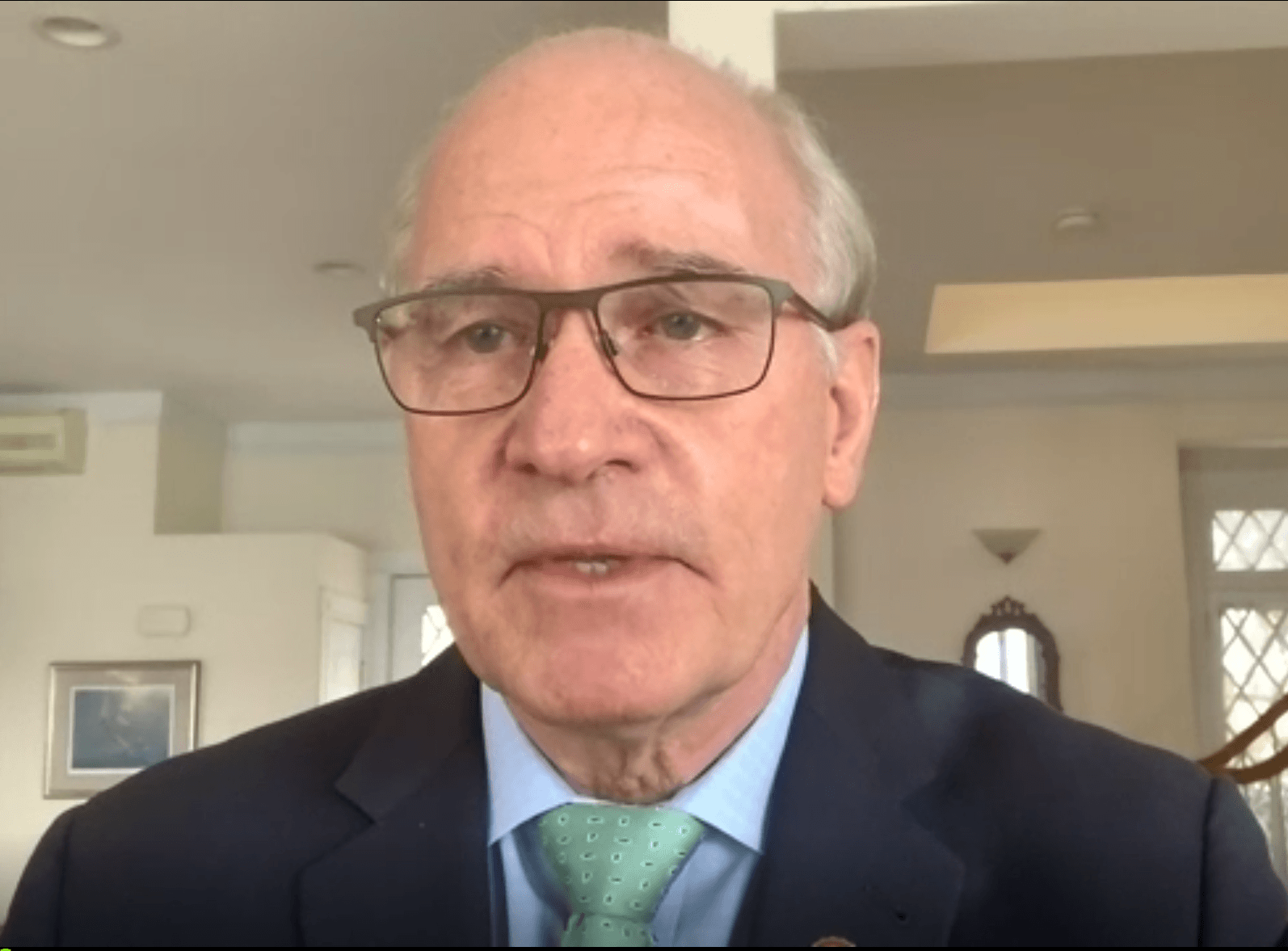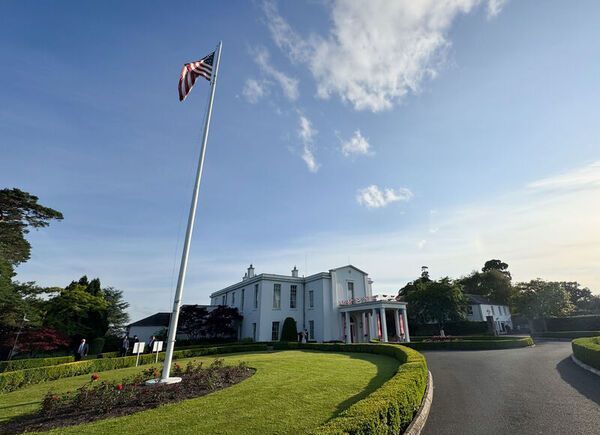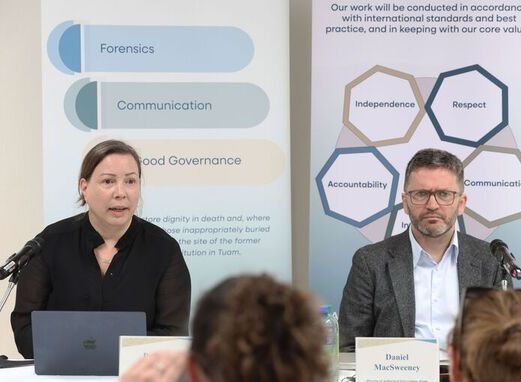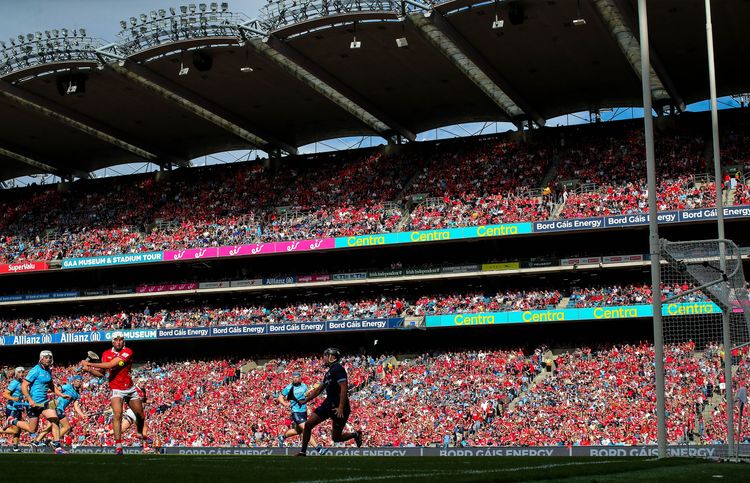Congressman William Keating has told Irish Americans their opposition to British amnesty plans “was critically important, and was being recognized across the Atlantic and in Congress.
Keating's call for support for House Resolution 888 opened the February 22 webinar hosted by the Ancient Order of Hibernians, a broadcast highlighted by moving accounts from family members of victims named in Northern Ireland Police Ombudsman Marie Anderson’s recently published Operation Achille report.
The webinar broadcast also featured cross-party support from Fianna Fail Senator Niall Blaney, Fine Gael Senator Barry Ward, and Sinn Fein MP, John Finucane, representing the three largest Irish political parties.
The Operation Achille findings of Royal Ulster Constabulary "collusive behavior" were the latest in a series of investigations and legal proceedings upholding charges of British state force involvement in murders, stated a release from the webinar organizers.
The 344 page report investigated RUC misconduct in relation to 11 murders and an attempted murder carried out in South Belfast between 1990 and 1998.
Anderson was "deeply concerned" by the scale and scope of RUC failings as revealed in her latest investigation.
According to the release, eight UDA/UFF members linked to the murders and attempted murders of 27 people were paid RUC informer agents. Targeted victims were not warned of threats. Forensic and identification leads were not followed. Evidence was destroyed. Weapons were handed back to the killer gang. Senior RUC investigators, even RUC members now working for the PSNI, refused to answer questions or cooperate with the probe.
Congressman Keating’s House Resolution 888, dealing with justice for Bloody Sunday and the Northern Ireland Protocol, also "Opposes any attempt by the British government to implement amnesty or statute of limitation laws that would end or inhibit investigations and prosecutions of crimes committed during the Troubles, including on Bloody Sunday."
The Massachusetts Democrat said the resolution had bipartisan support from Republicans and Democrats in Congress and the Biden Administration, but he called for more co-sponsors with pressure to that end from the AOH and other organizations being critical.
Congressman Keating said Resolution 888 was “important for anyone who believes in justice, or accountability or full investigations of when lives are taken by authorities and necessary so we can put Northern Ireland’s troubled past behind us.”
The webinar participants heard these following accounts from witnesses: Bosco Kennedy, at age 17 returned home from school one day to find that younger brother, James Kennedy, was one of five people murdered during the Sean Graham’s Bookmakers Massacre in 1992.
While he felt “relief that we finally got the report after 30 years of legal barriers and delays,” he observed “our family members did not have to die except the British felt keeping their informers was more important than protecting the lives of our loved ones.”
Mr. Kennedy said “now we have gotten the truth but we have not gotten justice.”
Siobhan Clinton was three years old when a killer gang came into her home and killed her mother Theresa Clinton. Her family was targeted because her father had run for election as a Sinn Fein candidate for Belfast City Council. One gun used to murder her mother had belonged to an RUC officer, while other weapons had been handed back to the killer gang.
Threats to kill her family were made as recently as two weeks before her mother’s murder, but never made known to her family. “Had we been informed of these threats our lives could have been completely different,” she said
Ms. Clinton refused any apology from the PSNI because “the constables involved did not even cooperate with their own Ombudsman investigation.”
Mark Sykes, who survived the Sean Graham’s Bookies’ massacre despite seven bullet wounds, described how the murder attack was carried out. One gunman sprayed the small room with a VZ58 automatic rifle imported by British agents, from South Africa, before a second gunman came through firing execution shots with a revolver.
He said the families knew right away there was collusion. A British Army-RUC checkpoint 30 yards away from the massacre site was removed just minutes before the attack began, while an Ulster Defense Regiment checkpoint was operating 200 yards away during the attack. They made no serious effort to prevent the attack or catch the killers. The RUC refused to reveal the forensic history of the weapons to journalists. Paid British agents were involved in carrying out the murders.
Senator Niall Blaney of Fianna Fail said Taoiseach Micheal Martin had recently met a Relatives for Justice Delegation including Mark Sykes, and had been moved by the emotional accounts of victims reliving the murder attacks. Both the Taoiseach and Fianna Fail Party were totally opposed to Britain’s amnesty proposals. Blaney’s father had been a close friend of Sinn Fein Councillor Eddie Fullerton, whose murder had been previously investigated by the Ombudsman. He expected that this issue would be raised by the Taoiseach in Washington, D.C. around St. Patrick’s Day.
Senator Barry Ward of Fine Gael noted that his party colleague, Simon Coveney, had taken a lead as Irish Foreign Minister in opposing British plans to discard the Stormont House Agreement. He said, “Britain is said to be a bastion of the rule of law but the amnesty proposal undermines everything they purport to stand for.” Ward represents Dublin which suffered the Dublin–Monaghan bombings and its victims were still fighting for truth. The British plan would mean “those responsible the Dublin-Monaghan bombings, could just walk away without ever facing justice.”
Sinn Fein MP, John Finucane was both a victim and survivor of British collusion policies. His family has been campaigning for justice ever since the murder of his father, civil rights lawyer Pat Finucane, in 1989. He said that British collusion in South Belfast “was one piece of a jigsaw puzzle that went right across the six counties, and was not a failure of policing but British policy in operation.” Finucane commended, “the dignity and courage of all of the victims’ families who continued on to overcome British efforts to block the truth from ever coming out.”
AOH National President, Danny O’Connell, said during the broadcast that “Irish justice was one of the few issues which could get bipartisan support in Congress and all-party support in the Dail.
AOH Vice President Sean Pender recapped the testimony from the important Lantos Commission hearing the previous Tuesday, co-chaired by Republican Chris Smith and Democrat Jim McGovern. Dolores Desch expressed the solidarity of the Ladies AOH.
AOH National Freedom for All Ireland Chairman Martin Galvin added: “The British want to cut off Ombudsman investigations, criminal cases, historical investigations, inquests civil suits, or anything else which could give the truth in hundreds of crown force or collusion killings.
"They know that every time the truth is uncovered through any of these legal means, what the Irish victims have said is proven true and the British cover stories are proven false.
“The families of those victims, who have spent decades fighting for justice, are appealing for American help to stop Britain’s planned amnesty whitewash. Don’t let them down."









